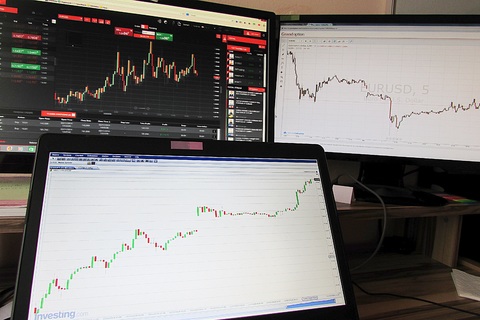Averaging up is an investing practice that sees a trader’s taking on additional shares of an already-possessed stock as the value increases. This increases the average cost per share, but it also gives a trader more shares to unload at higher prices if the security’s value continues rising. Following is some information on what it is to average up in stock trading online.
Average Up in Stock Trading Online
Averaging up (the opposite of averaging down) means taking on additional shares of stock at prices higher than those paid for earlier shares. This increases the average cost per share, a side effect of the practice, but it is done so that if the stock continues increasing, all shares may be unloaded for favorable returns in the future.
Example of Stock Trading Average Up
For example, suppose that an investor takes on 100 shares of stock at $5 per share. Then, the stock shows powerful upward momentum as it continues an uptrend, and reaches $9 per share. There, the investor, thinking that shares may be sold at even higher prices, purchases an additional 100 shares. So, the original price paid for the first 100 shares was $5 for a total of $500 spent, and in averaging up, the rest of the shares were taken on at $9, for $900, making $1,400 the total spent on all 200 shares, and increasing the average price spent from $5 to $7 after additional shares were taken on.
Now, if all 200 shares can be sold for at least $9, meaning that averaging up was a wise investing move, more money can be secured by the trader. If all 200 shares can be sold at, say, $10 per share, then $2,000 is netted, securing $600 more than the $1,400 spent for all shares. If the trader did not average up, the first 100 shares, bought at $5 for $500 in spending, would be sold for only $500 in profit at $10 per share, as opposed to the $600 after successful averaging up (as selling 100 shares, originally bought for $500 at $10 per share brings in $1,000, $500 more than what was spent, but selling 200 shares, bought for $1,400 for $2,000 brings in $600 in profits). So, if stock may be sold at higher than the price paid in averaging up, extra returns may be secured.
How to Average Up in Stock Trading Online
The goal in averaging up in investing is not to increase the amount spent per share for stock. It is to increase the total returns, and this means that stock will need to be sold for even higher than the prices paid in averaging up. To successfully average up, investors will need two things: first, stock will need to have risen from the price at which earlier shares were purchased, and second, it will need to rise even higher than the higher prices paid for extra shares after rising to be sold to bring in profits. When a stock steadily rises, scaling out by using scale orders is a technique for taking on rising stock at higher and higher prices, and the point is to sell at even higher values.
There are a number of considerations here. An investor should find a security that he or she is confident will continue increasing after additional shares are bought, and the trader will also need to take into account commission, as each trade can be costly.
